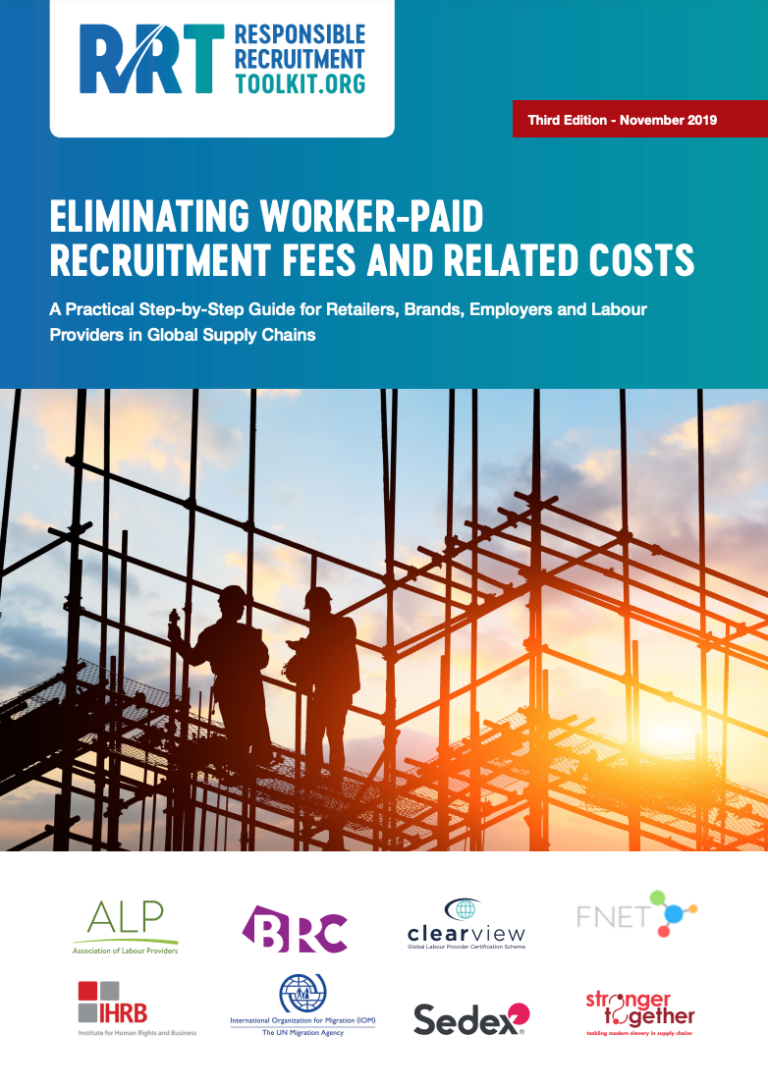There are costs associated with providing the range of services integral to recruiting workers, including advertising and sourcing workers, processing applications, interviewing, worker documentation, skills assessment, placement, orientation, transportation – within or across borders – to the place of work and training on arrival. These costs are often passed on to jobseekers and workers, including through hidden fees and services, for example:
– Exploitative mark-ups paid to various agents, brokers and middlemen involved in the recruitment process;
– Fees for so-called optional services, which are in fact integral to the recruitment process or where workers are misled or coerced into taking out such services (e.g. health insurance and translation services);
– Security deposits or bonds, which act as ‘runaway insurance’.

